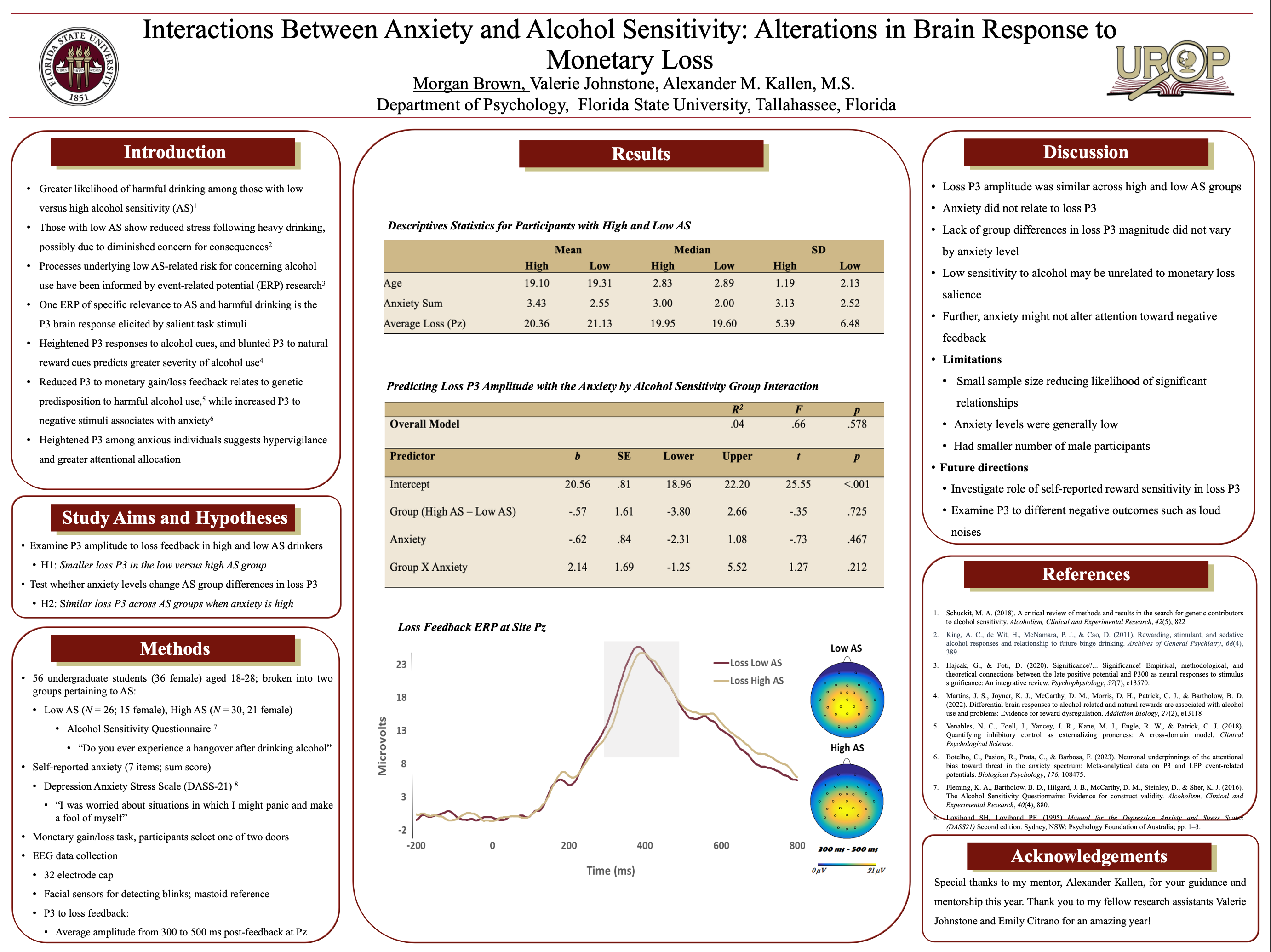Research Symposium
24th annual Undergraduate Research Symposium, April 3, 2024
Morgan Brown Poster Session 1: 9:30 am - 10:30 am /31

BIO
My name is Morgan Brown and I am from Boca Raton, Florida majoring in behavioral neuroscience! Currently, I am interested in internalizing disorders specifically depression and trauma-related disorders. Specifically, my focus lies in utilizing neuroimaging tools to dive into the intricate mechanisms underlying psychiatric disorders. This year, I have had the ability to work in a lab focusing on externalizing behaviors such as alcohol use and how excessive use may pose as a detriment to one's cognitive processes. In the long run, I would like to continue my work in the psychology department as well as working in patient care at Tallahassee Memorial Hospital. All in all, I plan to pursue an MD-Ph.D. dual degree with the hopes of advancing the field of clinical psychology while simultaneously providing compassionate patient care.
Interactions Between Anxiety and Alcohol Sensitivity: Alterations in Brain Response to Monetary Loss
Authors: Morgan Brown, Alexander KallenStudent Major: Behavioral Neuroscience
Mentor: Alexander Kallen
Mentor's Department: Psychology Mentor's College: Arts and Sciences Co-Presenters:
Abstract
Low alcohol sensitivity robustly predicts concerning alcohol use behaviors. The mechanisms underlying harmful drinking and low alcohol sensitivity have been clarified by event-related potentials (ERP). Prior research shows a small P3 response to natural reward cues is linked to more severe drinking, while a larger alcohol-cue P3 indicates greater alcohol use. Studies show youth at genetic risk for harmful alcohol use exhibit reduced P3s to monetary feedback, suggesting diminished attention to evaluative cues. Conversely, anxiety symptoms correlate with enhanced P3 responses to negative stimuli, and relate to alcohol use for distress relief. This study investigated associations between self-reported anxiety and P3 responses to gain/loss feedback in a gambling task, among undergraduates with high (N = 30)—compared to low (N = 26)—alcohol sensitivity. The findings indicate loss P3 amplitude was similar across alcohol sensitivity groups. Additionally, anxiety did not relate to loss P3 in the hypothesized manner. Overall, our study suggests low sensitivity to alcohol may not relate to salience of losing monetary reward. Future studies should aim to further investigate the connections between alcohol and reward sensitivity, especially in populations with reward pathway dysregulations such as anhedonia.
Keywords: EEG, Alcohol Sensitivity, P3, Anxiety


